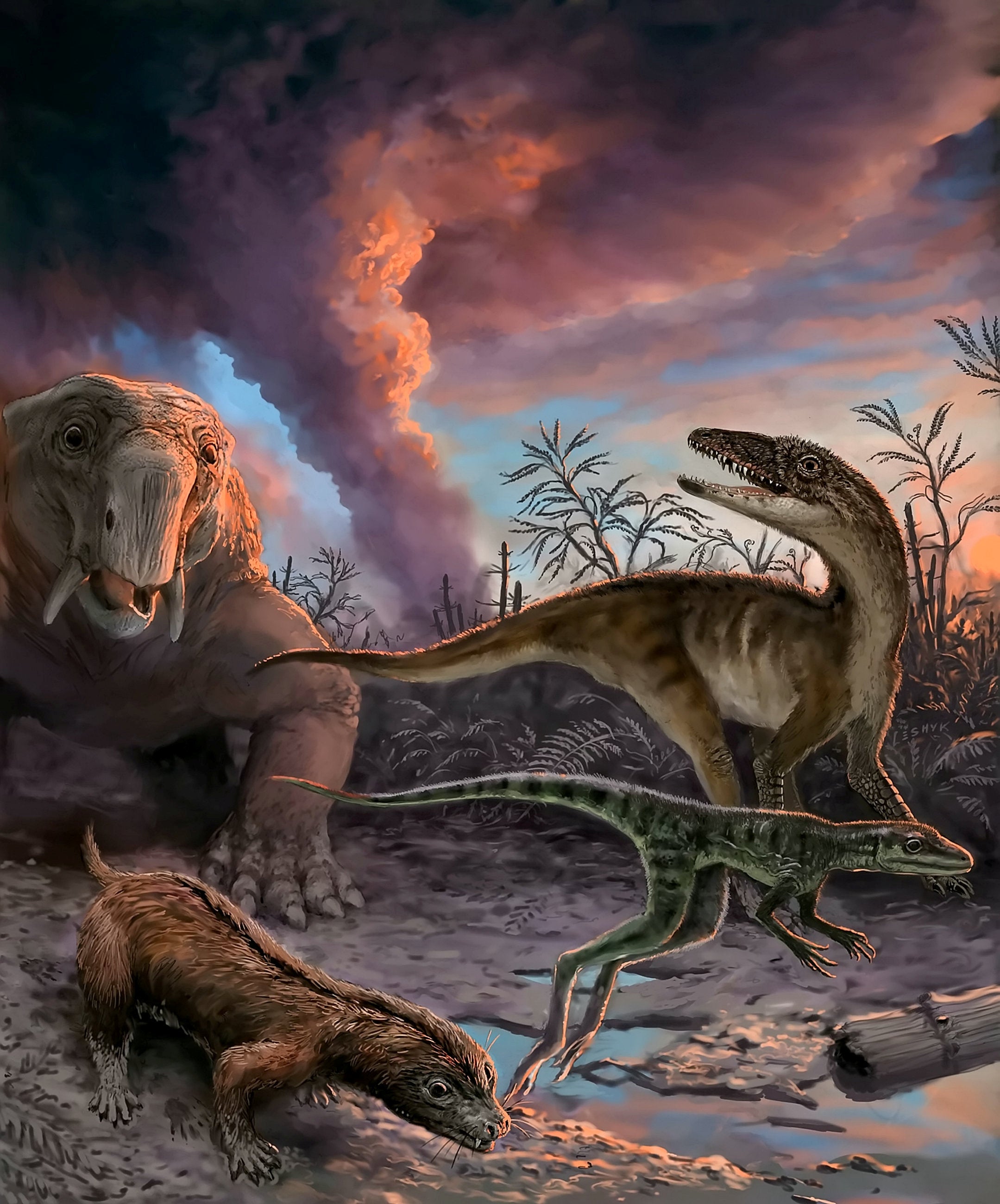Age of the dinosaurs was triggered by climate change, new research reveals
It was rising temperatures rather than competition that enabled ancient reptiles to diversify, according to a new study

The age of the dinosaurs was triggered by climate change, according to new research.
It was rising temperatures rather than competition that enabled ancient reptiles to diversify, leading to the biggest creatures that ever walked the Earth.
The phenomenon opened the door to the emergence of iconic plant eaters like Diplodocus and Brachiosaurus.
They were able to thrive and expand across new territories after the planet warmed up around 200 million years ago.
It followed a mysterious mass extinction linked to vast volcanic eruptions that sent the world into cold and darkness.
Unable to cope, more than three-quarters of land and marine species were wiped out. They included large terrestrial vertebrates such as the giant armadillo-like aetosaurs.
Early dinosaurs survived thanks to thick coverings of feathers. Afterwards, they took advantage by moving from being a minority group to those who were in charge.
The University of Birmingham team analysed computer models of prehistoric global climate conditions such as temperature and rainfall with.
They compared them with data on the different locations of dinosaurs taken from sources such as the Paleobiology Database.
It showed primitive sauropods with their long tails and necks and small heads were the runaway success story of a turbulent period of evolution.
The findings have implications for today. Animals have already started shape-shifting to cope with weather-linked stresses.
They are growing bigger ears, mouths and limbs to help regulate body temperature, say biologists.
Lead author Dr Emma Dunne, now at Friedrich-Alexander University Erlangen-Nurnberg, Germany, said: “Instead of dinosaurs being outcompeted by other large vertebrates, it was variations in climate conditions that were restricting their diversity.
“But once these conditions changed across the Triassic-Jurassic boundary, they were able to flourish.
“The results were somewhat surprising, because it turns out sauropods were really fussy from the get-go. Later in their evolution they continue to stay in warmer areas and avoid polar regions.”
Dinosaurs began emerging about 230 million years ago. They went on to become one the most successful animal groups - ruling the land for 165 million years.
Co author Professor Richard Butler said: “Climate change appears to have been really important in driving the evolution of early dinosaurs.
“What we want to do next is use the same techniques to understand the role of climate in the next 120 million years of the dinosaur story.”
The study is in the journal Current Biology.
Join our commenting forum
Join thought-provoking conversations, follow other Independent readers and see their replies
Comments


Bookmark popover
Removed from bookmarks